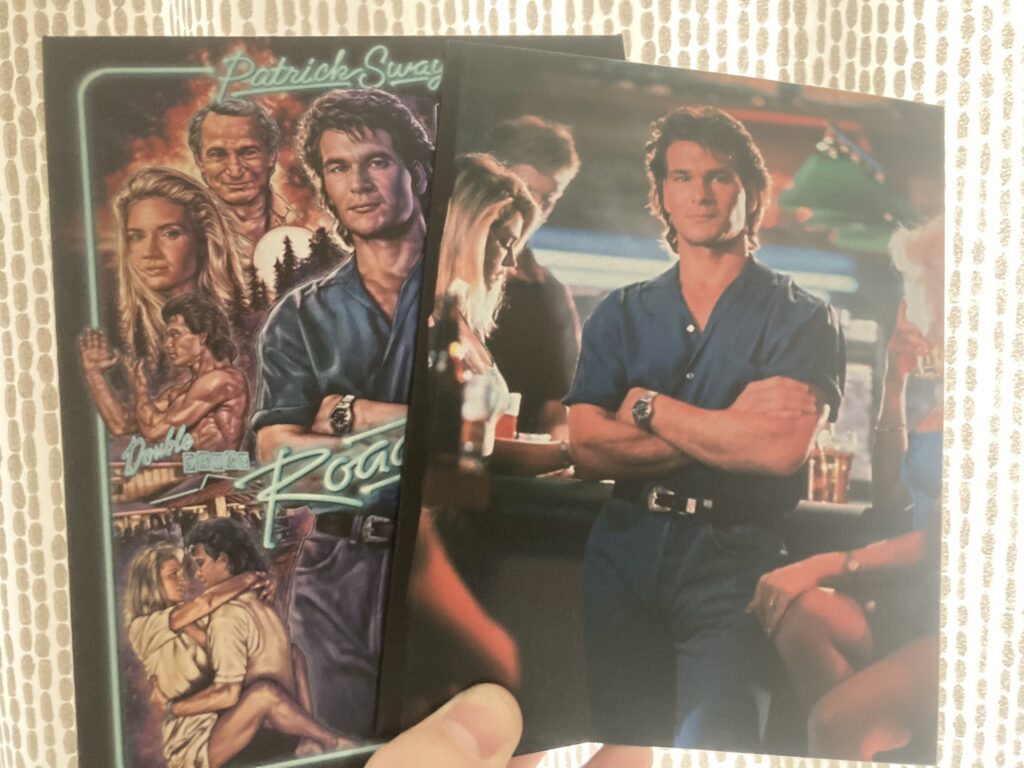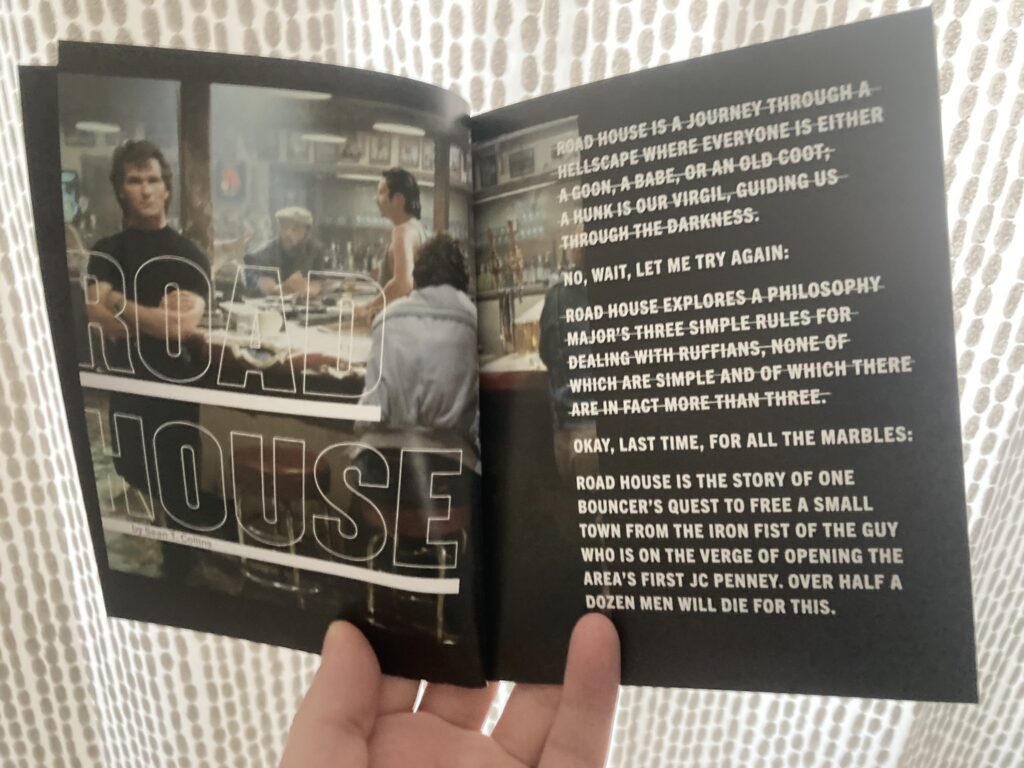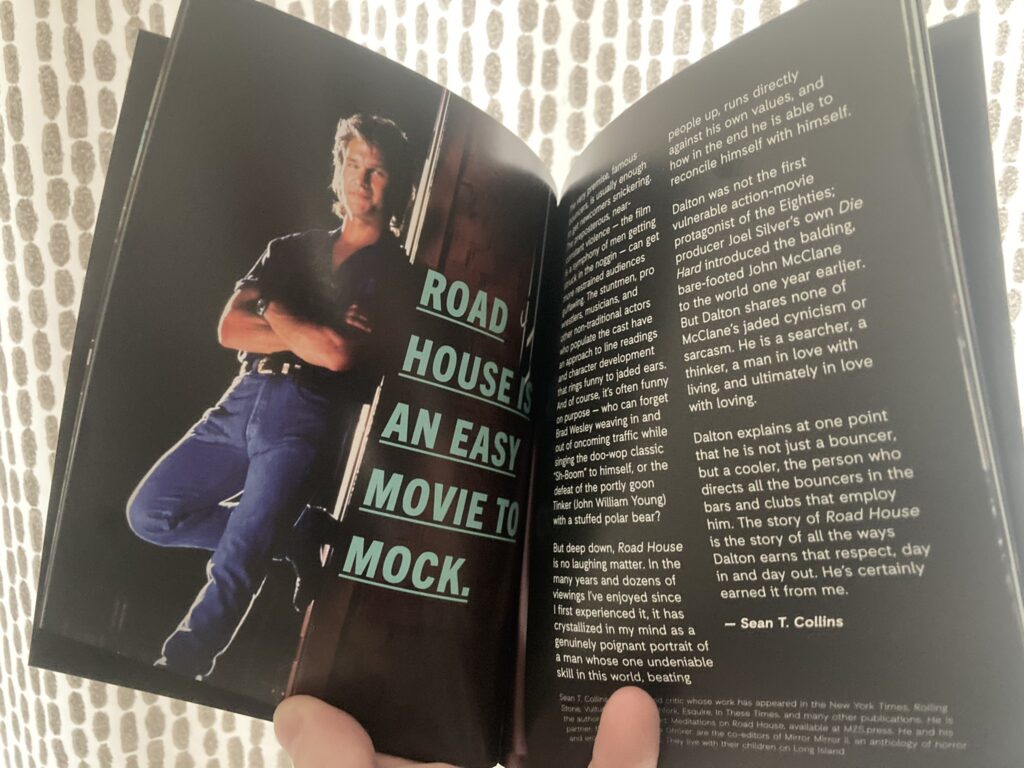Until things get down and dirty — not just sensual or half-naked but genuinely perverse — Mayfair Witches is doomed to feel like one of those sexy supernatural CW shows. Interview worked right out of the gate; Mayfair has a lot of work left to do.
“Mayfair Witches” thoughts, Season One, Episode One: “The Witching Hour”
“Copenhagen Cowboy” thoughts, Season One, Episode Six: “The Heavens Will Fall”
I hope we get to see more of the Copenhagen underworld, in every sense of that word. I hope we see more hours and hours of Refn (aided and abetted by co-developer Sara Isabella Jønsson and a talented writing staff in tune with their sensibilities). He’s a filmmaker completely confident in his obsessions who, for some reason, has been given more or less free rein to pursue them. You don’t see that on TV very often. Copenhagen Cowboy proves that you should.
I reviewed the season (fingers crossed!!!!) finale of Copenhagen Cowboy for Decider.
“Copenhagen Cowboy” thoughts, Season One, Episode Five: “Copenhagen”
There’s only one hour to go in this series — or season? — and Miu still has a lot of business to attend to: Chiang, Miroslav, the gang war, Nicklas and his family, you name it. (Even my pet favorite loose end, André, makes an appearance this episode via his pop song music video.) Given the relative simplicity of the story and subject matter compared to Too Old to Die Young or even The Neon Demon and Only God Forgives, I don’t anticipate world-shaking explosions. But you know what? Fireworks will do just fine.
“Copenhagen Cowboy” thoughts, Season One, Episode Four: “From Mr. Chiang with Love”
Copenhagen Cowboy is best experienced while profoundly stoned. Perhaps that’s an obvious point, but it’s still one worth making. Nicolas Winding Refn’s work can certainly be enjoyed stone-cold sober; honestly, I think of watching Too Old to Die Young high and get a little frightened. But the lurid colors, the sumptuous naturally lit scenes, the throbbing glowing score, the pregnant pauses, the leisurely-to-the-point-of-indolent camera movements: All of it is tailor-made for weed’s time-stretching, sense-enhancing effects. Don’t say you weren’t told, is all I’m saying.
I wrote about Copenhagen Cowboy‘s fourth episode for Decider.
“Copenhagen Cowboy” thoughts, Season One, Episode Three: “Dragon Palace”
Now that we’ve reached the halfway point (!!! seriously, this show is only six episodes long!), it seems safe to say that compared to Too Old to Die Young, Copenhagen Cowboy represents a retreat from the transcendent to the merely terrific. That’s nothing for creator/co-developer/director Nicolas Winding Refn to be ashamed of, either. Most shows don’t get anywhere close to terrific! And very few shows indeed (beyond TotDY obviously) have ever looked and felt like this one does.
I reviewed the third episode of Copenhagen Cowboy for Decider.
“Copenhagen Cowboy” thoughts, Season One, Episode Two: “Vengeance Is My Name”
The bottom line is that Copenhagen Cowboy is cool and confident television, made by an artist secure in his aesthetic and obsessions and intent on transmitting them to the audience. It’s how TV should be.
I reviewed the second episode of Copenhagen Cowboy for Decider.
“Copenhagen Cowboy” thoughts, Season One, Episode One: “Miu the Mysterious”
It’s true: Nicolas Winding Refn is an acquired taste. It’s true also that after Too Old to Die Young, the ferocious Amazon Prime series he co-created with comics writer Ed Brubaker, the acquisition of that taste should be required by law. An experiment in bold colors, long takes, laconic performances, tedium, horror, disorienting bursts of the supernatural, and no-bones-about-it criticism of the police as a fascist vanguard, TOtDY is, without qualification, one of the very best television shows ever made. NWR 1, his critics 0.
So what does the guy responsible for Drive and The Neon Demon do for a small-screen encore? He makes Copenhagen Cowboy, his first effort in his native Danish since before Ryan Gosling was even a glimmer in his eye. He shifts the scene from the dying American empire to the equally moribund European project. He makes his protagonist a nearly mute magical female sex worker instead of a nearly mute pedophile male cop. He cuts the running time way, way down. He moves from Amazon to Netflix. And he still knocks it out of the fucking park.
The 10 Best TV Needle Drops of 2022
9. Interview With the Vampire
“Home Is Where You’re Happy” by Charles Manson
“Look, Charlie Manson wrote a couple of beautiful songs. Still, he was Charlie Manson.” Controversial, Daniel Molloy! The conductor of this vampire drama’s titular interview, played by Eric Bogosian, has very little patience for the bloodsucker in question, Louis de Pointe du Lac, and even less for Louis’s psychotic, pubescent protégé, the teenage vampire Claudia. It’s her Molloy compares to Manson, the cult leader who defined the death of the Age of Aquarius … and much to my everlasting surprise, it’s Manson who soundtracks the end of this episode. Molloy is right: Manson could be a talented songwriter in very limited doses, as his buoyant ode to personal freedom, “Home Is Where You’re Happy,” makes clear. It’s just hard to hear that happiness when you recall the fate of Sharon Tate, which is what makes the song a strong choice for the soundtrack of a show about magnetic mass murderers, even when they’re of the supernatural variety.
I wrote about ten of the best uses of popular music on TV this year for Vulture.
“Alice in Borderland” thoughts, Season Two, Episode Eight
More shows should be insanely, insanely violent with people crying about how much they love each other all the time. Maybe all shows should be that way? At least that’s how I feel about watching this season finale. It clocks in at an overlong 75 minutes or so minus the credits, its central conceit is an hallucinatory dream-within-a-dream the solution of which you can see coming from a mile away, it concludes with basically hand-waving away the entire series to date Wizard of Oz style before one last “…or is it?!?” twist, and guess what? I still loved it. Didn’t you?
I reviewed the season finale of Alice in Borderland for Decider.
“Alice in Borderland” thoughts, Season Two, Episode Seven
Let’s get a few things out of the way right up front.
Do people who aren’t gymnasts or trained professional wrestlers fly a dozen feet through the air turning corkscrews all the while after being kicked or thrown by even a very strong person? No, they do not.
Can someone survive being strafed by an automatic weapon at point blank range, long enough to crawl around and pine for the person they love? No, they cannot.
Is it feasible for — let me count here — nine major protagonists and antagonists to survive being shot, stabbed, beaten, run over, bashed against concrete, set on fire, blown up, launched through a plate-glass second-story window, or all of the above, and live long enough to tell the tale, or at the very least have poignant last words before they die? No, it is not.
Does any of this make this episode of Alice in Borderland any less badass? No, it does not.
I reviewed the penultimate episode of Alice in Borderland Season 2 for Decider.
“Alice in Borderland” thoughts, Season Two, Episode Six
It would be a mistake to kick off this review of by saying “shit is getting real.” On Alice in Borderland, shit has been real since the very first episode, or certainly since the main-character bloodbath in Season 1 Episode 3. It’s just that the episodes seem to be getting longer — this one clocks in around 70 minutes minus the lengthy closing credits — and more jam-packed with stuff, as the scattered cast continues pursuing their own, uh, pursuits. Some of these end in naked makeout sessions in a hot springs while elephants bathe nearby. Others end with people getting melted by sulfuric acid. Such is life in the Borderland.
I reviewed the sixth episode of Alice in Borderland Season 2.
“Alice in Borderland” thoughts, Season Two, Episode Five
Rather than start with a plot summary, I just want to point out director Shinsuke Sato’s eye for spectacular imagery and his team’s ability to pull it off. Arisu walking around the outskirts of the city and discovering that entire streets and skyscrapers have been somehow overrun with vegetation. Usagi and Arisu playing a lethal game of tag in a huge open-walled power plant or something, the camera gliding around outside it as we watch players wearing red and blue light-up vests run and climb and dodge like crazed worker ants in an anthill someone’s spraying with a hose. Ann (remember her?) traveling as far as she can away from Tokyo only to discover a mountain range that would give Mordor a run for its money. (It’s a better shot than anything I saw in The Lord of the Rings: The Rings of Power, that’s for sure.) This is the kind of shit that keeps you coming back.
I reviewed episode five of Alice in Borderland Season 2 for Decider.
“Alice in Borderland” thoughts, Season Two, Episode Four
The second episode in a row to feature a sort of halftime break between different stories, this installment of Alice in Borderland is, I think, the least relentless ep in the second season so far. Which is fine! Everyone needs a breather now and then, and that extends to the audience as well as the players. Don’t get me wrong, there’s still plenty of murder going down, but following the intensity of the three-episode-long King of Clubs arc and the Saw-like start of the Jack of Hearts game, this is relatively — relatively — chill stuff.
I reviewed the fourth episode of Alice in Borderland Season 2 for Decider.
“Alice in Borderland” thoughts, Season Two, Episode Three
The third episode of Alice in Borderland’s second season is a terrific hour of television that should probably have been two terrific half-hours of television.
I reviewed Alice in Borderland Season 2’s third episode for Decider.
The Boiled Leather Audio Hour on “1899”!
Ooh look, it’s the new Boiled Leather Audio Hour, in which Stefan Sasse and I discuss 1899, the new series from the makers of Dark! Available here or wherever you get your podcasts!
“Alice in Borderland” thoughts, Season Two, Episode Two
Well, this may be the simplest Alice in Borderland episode of all time. Not the rules of the game that Arisu and company are playing mind you — those are the most convoluted in the history of the series, though you can get the hang of it quickly. (The players do!) The plot, rather, is streamlined and straightforward. There’s a game, they play it, they don’t leave the arena, they don’t even finish the game and move on. The result is an Alice in Borderland that reads as 100% pure and uncut Alice in Borderland. This is what it’s all about.
I reviewed the second episode of Alice in Borderland‘s second season for Decider.
‘Alice in Borderland’ thoughts, Season Two, Episode One
So here’s the pitfall for those of us who want to sound smart while enjoying Alice in Borderland. You know how Squid Game, the similarly themed Korean show about average joes forced to kill or be killed by mystery-shrouded game masters, is sort of about the dehumanizing power of capitalism? Alice in Borderland is pretty much just about the pleasure of watching gorgeous actors run around killing and rescuing each other.
This is not a complaint! That’s cinema, baby!
STC in the Road House 4K UHD Blu Ray Box Set from Vinegar Syndrome
Today I received my contributor’s copy of Vinegar Syndrome’s Road House blu ray box set, and I’m staggered by how good they made my introductory essay in the booklet look:



I think it’s sold out or being held in the vault at the moment, but as soon as it’s back on sale — and as soon as my book Pain Don’t Hurt: Meditations on Road House is back in print — I will let you know!
“The White Lotus” thoughts, Season Two, Episode Seven: “Arrivederci”
Well, you’ve certainly got to give it up for Jennifer Coolidge, that’s for one thing. A lot of Coolidge fandom is that weird performative thing that all actor fandoms seem to do at this point where it’s more like you want this person to be your parent or best friend than a dude who happens to be really good at acting, but let’s put that aside, because she really is good at acting! It’s hard to convincingly play a stupid person without it devolving into a million old jokes, and Coolidge has consistently pulled that off as Tanya. This episode in particular is the ne plus ultra of the role, as Coolidge portrays Tanya’s final realization that she’s surrounded by men who intend to murder her for her money like a cocker spaniel figuring out calculus.
I reviewed the season finale of The White Lotus for Decider.
“The White Lotus” thoughts, Season Two, Episode Six: “Abductions”
Are there dramatic moments that moved me, or comedic moments that made me laugh? Very much so! Bert’s open distress as he connects his failed family reunion with the fact that he’ll never be romantically or maternally loved again. Quentin telling Tanya that doing coke after a prolonged period of abstinence is like “riding a bike.” Jack semi-drunkenly asserting that we live at the best point in history despite all the signs to the contrary, which have been brought up by Portia primarily to burst his bubble rather than to make any kind of real point. Harper and Ethan’s grueling conversation about whether or not their marriage is dead, the tightest and hardest-hitting discussion of relatable human misery in the show’s history, I think. Ethan’s increasingly insufferable stone-faced fury at it all. The revelation that Isabella and Rocco are engaged. The genuine sexual chemistry between Valentina and Mia.
I reviewed this week’s episode of The White Lotus for Decider.
